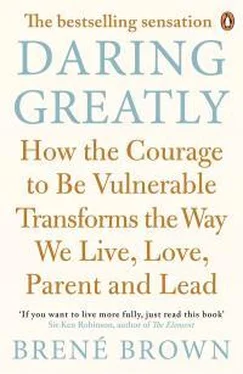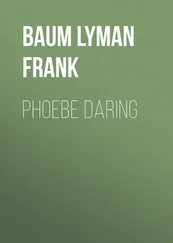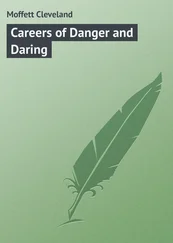hooks, b. (1994). Teaching to transgress: Education as the price of freedom. New York: Routledge.
Dennis Saleebey: Saleebey, D. (1996). The strengths perspective in social work practice: Extensions and cautions. Social Work, 41, 3: 296–306.
In a video interview with CNN/Money: http://management.fortune.cnn.com/2012/03/16/lululemon-christine-day. Retrieved March 2012.
Tribes: Godin, S. (2008). Tribes: We need you to lead us. New York: Portfolio.
CHAPTER 7
WHOLEHEARTED PARENTING: DARING TO BE THE ADULTS WE WANT OUR CHILDREN TO BE
One of the very best pieces of parenting advice: The Oprah Winfrey Show . Harpo Studios. May 26, 2000.
C. R. Snyder’s research on hope:
Snyder, C. R. (2003). Psychology of hope: You can get there from here, paperback ed. New York: Free Press.
Snyder, C R., Lehman, Kenneth A., Kluck, Ben, and Monsson, Yngve. (2006). Hope for rehabilitation and vice versa.” Rehabilitation Psychology, 51, 2: 89–112.
Snyder, C. R. (2002). Hope theory: Rainbows in the mind.” Psychological Inquiry, 13, 4: 249–75.
APPENDIX
TRUST IN EMERGENCE: GROUNDED THEORY AND MY RESEARCH PROCESS
Letting go of your own interests: Glaser, B., and Strauss, A. (1967). The discovery of grounded theory. Chicago: Aldine.
Glaser, B. (1978). Theoretical sensitivity: Advances in the methodology of grounded theory. Mill Valley, CA: Sociological Press.
Glaser, B. (1992). Basics of grounded theory: Emergence versus forming. Mill Valley, CA: Sociological Press.
Glaser, B. (1998). Doing grounded theory: Issues and discussions. Mill Valley, CA: Sociological Press.
Glaser, B. (2001). The grounded theory perspective: Conceptualization contrasted with description. Mill Valley, CA: Sociological Press.
Behavioral researcher Fred Kerlinger defines theory: Kerlinger, Fred N. (1973). Foundations of behavioral research. 2nd edition. New York: Holt, Rinehart and Winston.
After developing a theory on shame resilience: Brown, 2004, 2005, 2009, 2010.
Originally developed by Glaser and Strauss: Glaser, B., and Strauss, A. (1967). The discovery of grounded theory. Chicago: Aldine.
Refined by Glaser: Glaser, 1978, 1992, 1998, 2001.
When using theoretical sampling: Glaser, 1978.
One important tenet of grounded theory: Glaser, 1978, 1998, 2001.
A basic tenet of grounded theory is “all is data”: Glaser, 1998.
Adjusted conversational interviewing: Glaser, 1978, 1998.
Grounded theory researchers are required: Glaser, 1978, 1998, 2001.
… theory is generated from the data: Glaser, 1978, 1998, 2001.
According to Glaser: Glaser, 1998.
… keeping an existing theory intact: Glaser, 1998.
… allow the core problems and processes to emerge: Glaser, 1992; Glaser, 1998.
Work the core of what is going on: Glaser, 1998.
… the former must be constantly modified: Glaser, 1978.
He just wanted a decent book to read ...
Not too much to ask, is it? It was in 1935 when Allen Lane, Managing Director of Bodley Head Publishers, stood on a platform at Exeter railway station looking for something good to read on his journey back to London. His choice was limited to popular magazines and poor-quality paperbacks – the same choice faced every day by the vast majority of readers, few of whom could afford hardbacks. Lane’s disappointment and subsequent anger at the range of books generally available led him to found a company – and change the world.
We believed in the existence in this country of a vast reading public for intelligent books at a low price, and staked everything on it’
Sir Allen Lane, 1902–1970, founder of Penguin Books
The quality paperback had arrived – and not just in bookshops. Lane was adamant that his Penguins should appear in chain stores and tobacconists, and should cost no more than a packet of cigarettes.
Reading habits (and cigarette prices) have changed since 1935, but Penguin still believes in publishing the best books for everybody to enjoy. We still believe that good design costs no more than bad design, and we still believe that quality books published passionately and responsibly make the world a better place.
So wherever you see the little bird – whether it’s on a piece of prize-winning literary fiction or a celebrity autobiography, political tour de force or historical masterpiece, a serial-killer thriller, reference book, world classic or a piece of pure escapism – you can bet that it represents the very best that the genre has to offer.
Whatever you like to read – trust Penguin.
www.penguin.co.uk
Join the conversation:
Twitter Facebook

PORTFOLIO PENGUIN
Published by the Penguin Group
Penguin Books Ltd, 80 Strand, London WC2R 0RL, England
Penguin Group (USA) Inc., 375 Hudson Street, New York, New York 10014, USA
Penguin Group (Canada), 90 Eglinton Avenue East, Suite 700, Toronto, Ontario, Canada M4P 2Y3 (a division of Pearson Canada Inc.)
Penguin Ireland, 25 St Stephen’s Green, Dublin 2, Ireland (a division of Penguin Books Ltd)
Penguin Group (Australia), 707 Collins Street, Melbourne, Victoria 3008, Australia (a division of Pearson Australia Group Pty Ltd)
Penguin Books India Pvt Ltd, 11 Community Centre, Panchsheel Park, New Delhi – 110 017, India
Penguin Group (NZ), 67 Apollo Drive, Rosedale, Auckland 0632, New Zealand (a division of Pearson New Zealand Ltd)
Penguin Books (South Africa) (Pty) Ltd, Block D, Rosebank Office Park, 181 Jan Smuts Avenue, Parktown North, Gauteng 2193, South Africa
Penguin Books Ltd, Registered Offices: 80 Strand, London WC2R 0RL, England
www.penguin.com
First published in the United States of America by Gotham Books, a member of Penguin Group (USA) Inc. 2012
First published in Great Britain as an electronic edition by Portfolio Penguin 2013
Copyright © Brené Brown, 2012
Cover design by Pete Garceau
All rights reserved
Except for friends and family, names and identifying characteristics of individuals mentioned have been changed to protect their privacy
The moral right of the authors has been asserted
ISBN: 978-0-67-092353-3







![Брене Браун - Вопреки. Как оставаться собой, когда всё против тебя [litres]](/books/436389/brene-braun-vopreki-kak-ostavatsya-soboj-kogda-v-thumb.webp)





